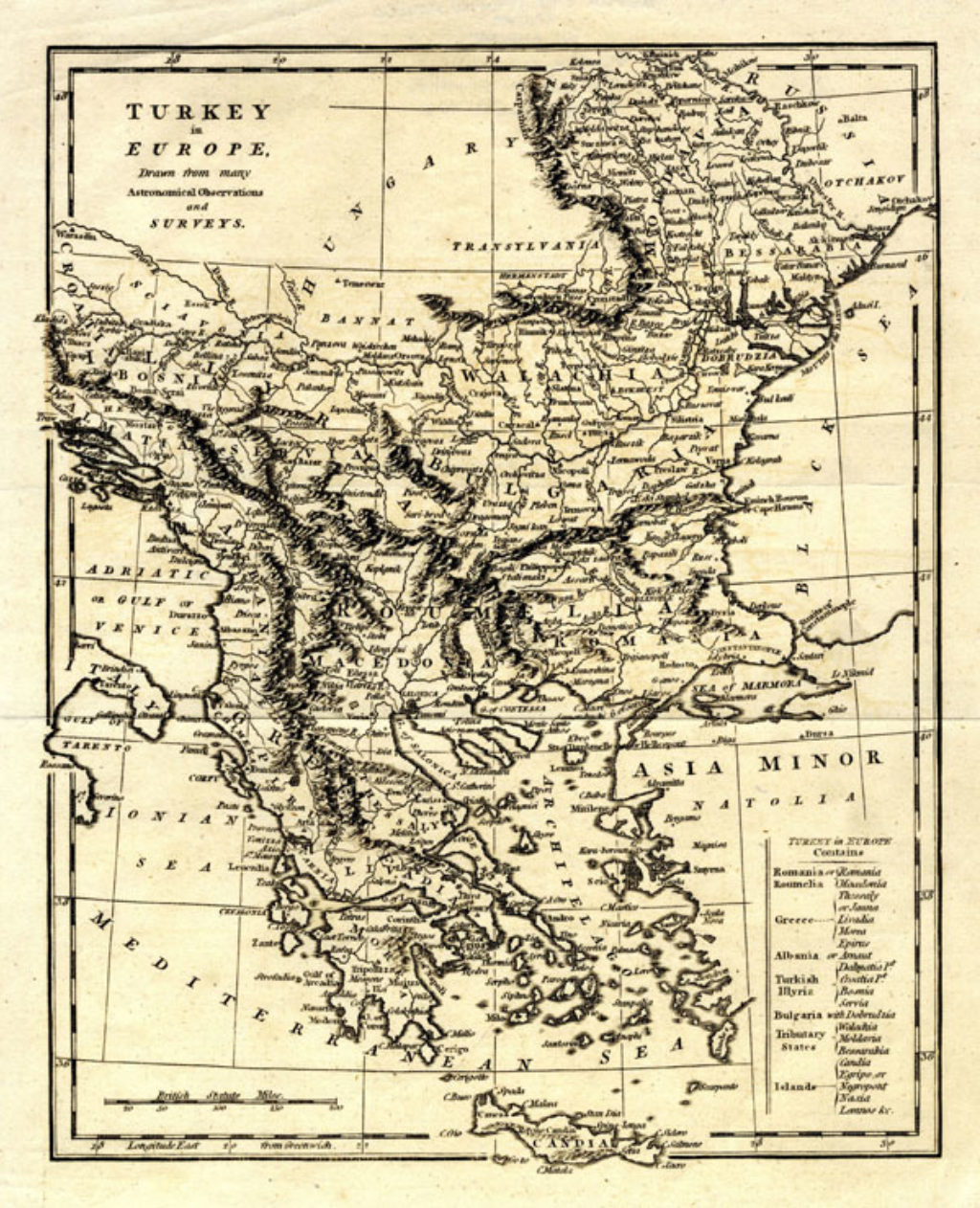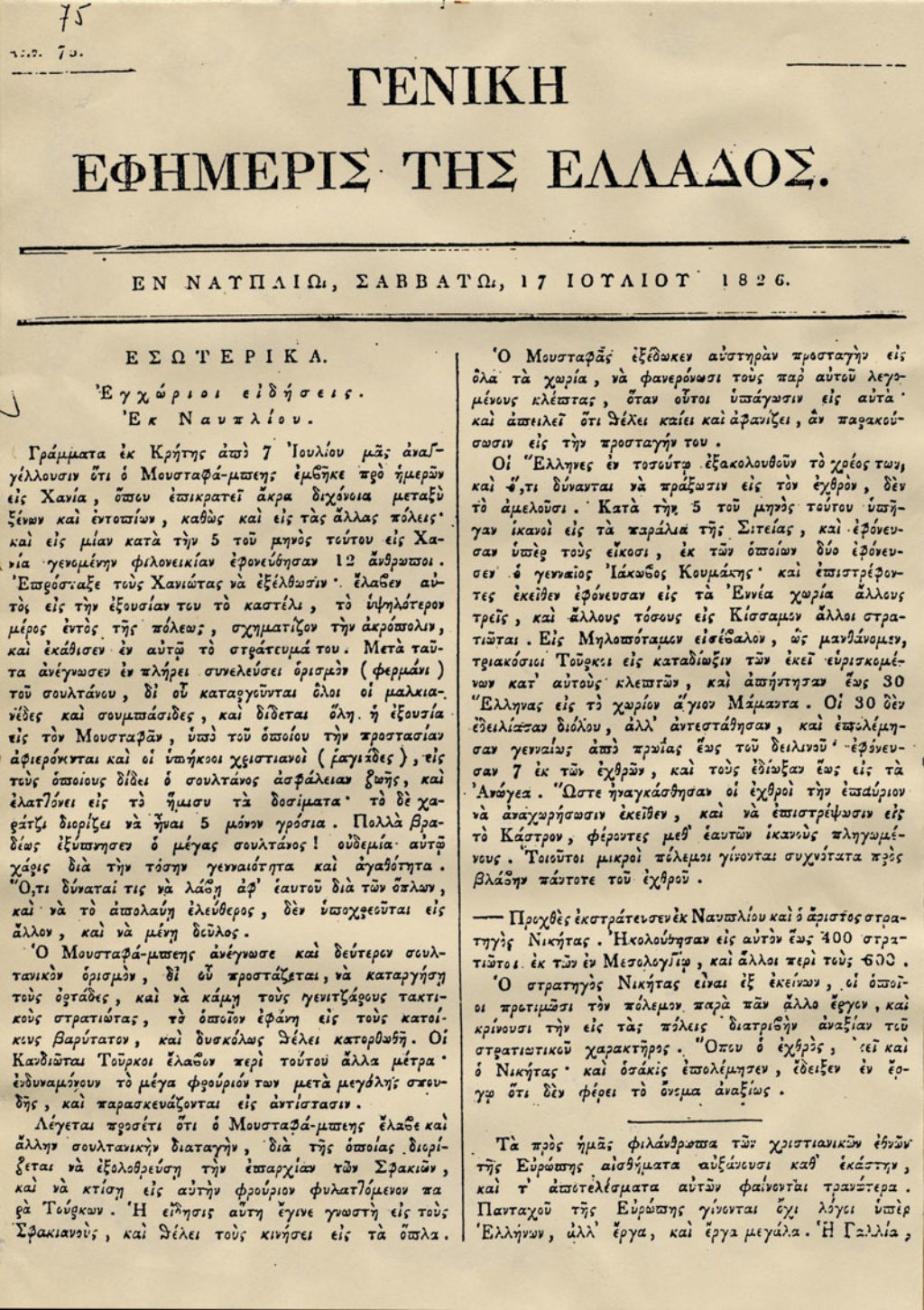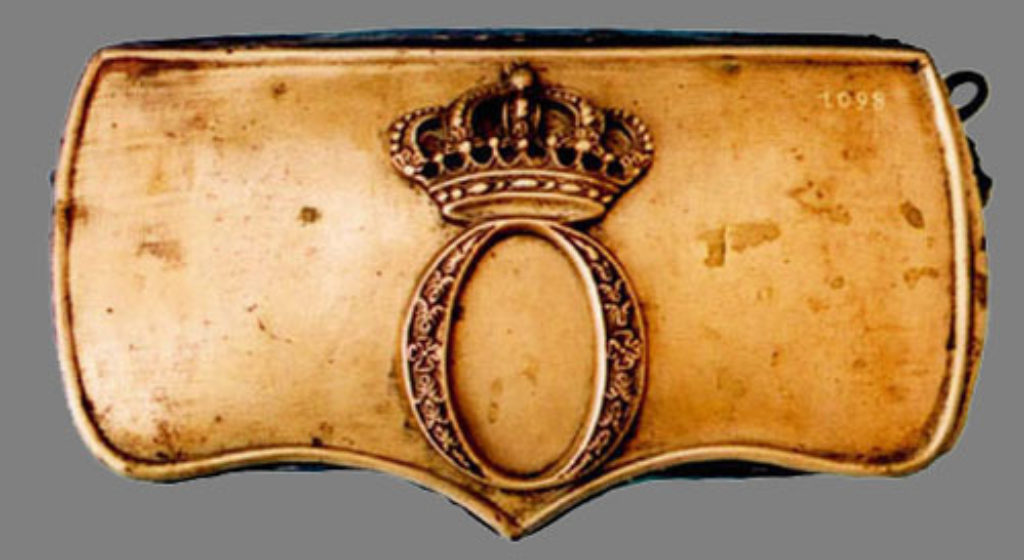OVERVIEW OF THE GREEK REVOLUTION
The Starting Point
The Starting Point
From the late 18th century, the mercantile communities of the overseas Greeks in Europe flourished. The diaspora Greeks became the bearers of the European ideas of bourgeois liberalism. Furthermore, the transition from the 18th to the 19th century also saw the social transformation of the Greeks in Ottoman imperial territory. This involved a shift in the economy of Greek communities from agriculture to commerce, thus rendering their economic activity increasingly incompatible with the despotic regime of the Ottoman Empire. In the meantime, the Greeks accumulated capital, particularly from maritime activity over the course of the Napoleonic Wars (1793-1814). As the demand for freedom and national self-determination awoke within their minds, this was to be channelled into the Greek Revolution.
The Greek Revolution (1821-1830) was an armed uprising against Ottoman rule with the primary aim of establishing an independent Greek state.It had its beginnings in the Danubian Principalities, more specifically in the city of Iași in the Principality of Moldavia. There, on 24 February 1821, a revolutionary proclamation entitled “Fight for Faith and Homeland” was circulated, calling for the establishment of an independent Greek state. The authors were members of the Friendly Society or Philiki Etairia, a secret society founded in Odessa in 1814. The uprising in Moldavia, led by Alexandros Ypsilantis (aide-de-camp to the Russian Tsar), was a military failure and was denounced by the Great Powers (the Holy Alliance).
The Course of the Revolution
The Course of the Revolution
At the same time, armed Christian groups (rebel leaders, prokritoi, klephts and armatoloi – notables, brigands and irregular soldiers respectively) mobilised in the Peloponnese, Central Greece, Macedonia, Thessaly, Epirus and the Aegean islands. The Ottoman army failed to suppress the outbreaks in the Peloponnese, Central Greece and the Aegean Islands, and in 1824 Sultan MahmutII requested the aid of the viceroy of Egypt Mohammed Ali. The viceroy’s son, Ibrahim Pasha, landed in the Peloponnese with an army and, acting together with Ottoman forces, captured Missolonghi (1826) and Athens (1827), while the Egyptian fleet enjoyed similar successes in Crete and the Aegean.
A major milestone in the course of the Greek Revolution was the decision by Britain, Russia and France to launch a military intervention, between 1825 and 1828, against the joint Ottoman and Egyptian forces, and to provide political support for the establishment of an autonomous Greek hegemony. Meanwhile, the Greek military successes of 1828–1829 led to the capitulation of the Ottoman forces after their defeat at the battle of Petra (September 1829).
Independence
The establishment of an independent Greek state, ruled by an absolute and hereditary monarchy, was achieved in 1830 (London Protocol), with the Great Powers choosing Prince Leopold of Saxe-Coburg to be its first king. He, however, declined the crown, so the Great Powers appointed 17-year-old Prince Otto of Bavaria in his stead. In 1832 the Kingdom of Greece was recognised by the Ottoman Empire (Treaty of Constantinople) and its borders were defined as the line from the Pagasetic Gulf to the Ambracian Gulf.



